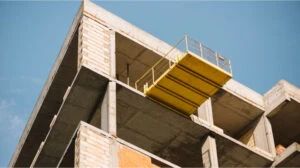
The New Home Warranty Act (“NHWA”), La. R.S. 9:3141, sets out the exclusive remedies, warranties, and preemptive periods in relation to the rights of homeowners and builders in home construction projects in Louisiana.
The NHWA provides for two warranty periods. The first provides that the home will be free from any defect due to noncompliance with building standards or due to other defects in materials or workmanship for one year following the warranty commencement date. The second warranty provided within the NHWA provides that the home will be free from major structural defects due to noncompliance with building standards or due to other defects in materials or workmanship for five years following the warranty commencement date. The warranty commencement date is the date that legal title of a home is conveyed to the initial purchaser or the date the home is occupied, whichever is first.
This provides homeowners with two preemptive periods within which suit must be filed to recover damages for defects in their home. The Louisiana Supreme Court addressed the second warranty in the NHWA, those related to “major structural defects.” In Shaw v. Acadian Builders and Contractors, LLC, the Court defined what constitutes a “major structural defect.” Shaw v. Acadian Builders and Contractors, LLC, 2013-0397 (La. 12/10/13).
What Is a Major Structural Defect?

Injured on Someone Else’s Property?
Know Your RightsOur expert premises liability lawyers will help you hold negligent property owners accountable.
Get a Free Case Evaluation
504-500-1111In Shaw, a home in Pelican Point subdivision was built by Acadian Builders and Contractors, LLC and sold on September 27, 2005. Barbara Shaw purchased the home from the initial homeowner in February of 2006. In 2008, Shaw began to notice signs of water damage, which led Shaw to retain a home inspector. The home inspector discovered water intrusion due to defects in the application of Tyvek paper, which is water-resistant material the homebuilder applied underneath the exterior stucco. The improper application of the Tyvek paper allowed water intrusion, causing deterioration of the particle board which was supporting and stabilizing the studs in the home.
In February of 2009, Shaw notified Acadian in writing of the water intrusion and alleged defects, which Acadian inspected. Acadian took the position that its obligations to repair the defects in the home had expired under the NHWA. Shaw filed suit in February of 2009, to which Acadian filed exceptions of prescription and preemption.
Harmed by a Dangerous Defective Product?
We’re Here for YouOur experienced product liability attorneys will fight to secure the compensation you deserve for your injuries.
Schedule a Free Consultation
504-500-1111The district court determined that a “major structural defect” existed and awarded Shaw $115,380.68 plus legal interest, all costs of the proceeding, and reasonable attorney fees. Acadian appealed, and the Court of Appeal reversed, finding that no “major structural defect” under the NHWA existed, determining Shaw’s action had prescribed. The Court of Appeal reasoned that even though the exterior stucco and Tyvek paper defects allowed water into the home, the defects were not “failure of the load-bearing portions,” and the one-year prescriptive period was applicable, rendering Shaw’s suit untimely.
Slip and Fall Accident?
Get the Legal Support You NeedOur dedicated slip and fall attorneys will help you navigate the legal process and claim the compensation you deserve.
Speak to a Lawyer Today
504-500-1111The Supreme Court reversed the Court of Appeal and upheld the district court’s judgment, finding that the Court of Appeal misinterpreted La. R.S. 9:3143(5). The Court reasoned that whether the Tyvek paper or stucco is load-bearing is irrelevant. The Court explained the pertinent question is whether actual physical damage to a load-bearing portion has been caused by a failure of that load-bearing portion.
The takeaway of the ruling is that the five-year warranty period related to a “major structural defect” does not require homeowners to prove that the failed component of a load-bearing portion of a home is in and of itself load-bearing. Louisiana homeowners must only prove that defects in a component of a load-bearing portion of their home contributed to the structural defect. This provides homeowners with more latitude and time to file claims against homebuilders for defects that affect the structural integrity of homes, but do not appear within one year from sale and/or occupancy.
Contact our office in New Orleans to discuss your claim with a highly rated and experienced lawyer. You can reach us by phone at (504) 500-1111, or send us a message to schedule your free initial consultation.
